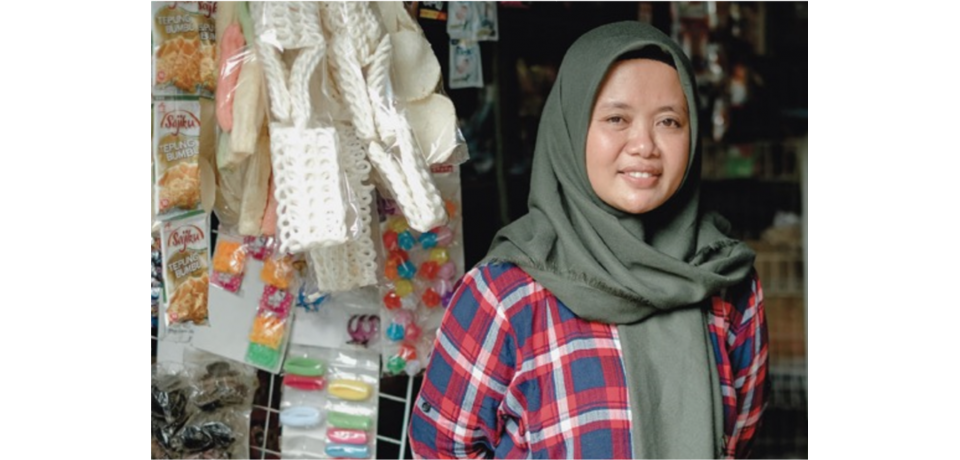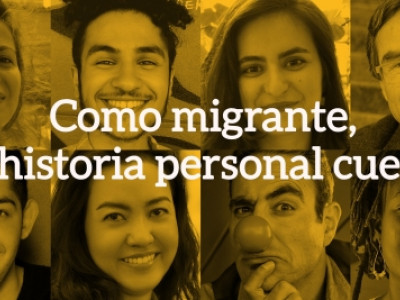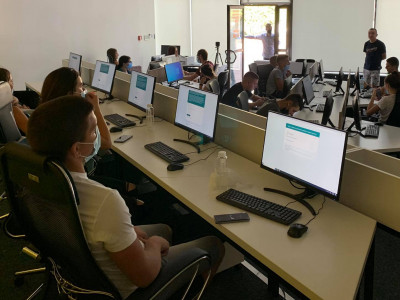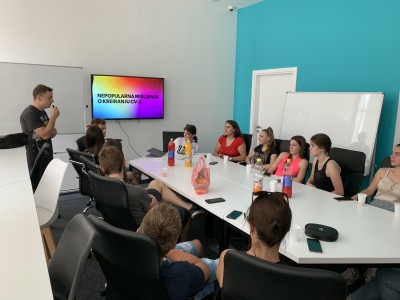Piloting Village-level Action to Enhance Protection and Empower Indonesian Migrant Worker Households Amid the Pandemic
IOM Indonesia: Karina Larasati (klarasati@iom.int)
UNDP Indonesia: Ainul Djula (ainul.djula@undp.org)
Objetivos de Desarrollo Sostenible Relacionados y Objetivos del Pacto Mundial sobre Migración
Resumen
Return migration was a significant trend in many countries around the world during the COVID-19 pandemic, as migrants lost their jobs and restrictions on mobility made migration more challenging and, often, dangerous. In 2020 alone, 180,000 Indonesian migrant workers returned home to their communities of origin. Through the first round of the Seed-Funding initiative, IOM and UNDP deployed a wide-ranging study to identify the needs, capacities, and support mechanisms in the villages of origin of migrant workers to identify opportunities for the enhanced inclusion of migrant worker households into existing COVID-19 recovery, and sustainable development programming.
According to the results of the study conducted in 2020, an overwhelming majority of surveyed villages had not included migration considerations in their village medium-term development plans or village regulations, as village governments did not fully understand their roles in migration governance and were unaware of wider national migration policies and issues. For this reason, in this second round of the Seed-Funding Initiative, IOM and UNDP aimed to build the capacities and knowledge of village officials around migration through training and technical support.
Objetivo clave
IOM and UNDP supported community leaders to meaningfully include migration in village planning and regulation by applying the UN Joint Migration and Development Initiative (JMDI) Toolbox to the specific Indonesian context, thereby utilizing it to enhance village planning on migration and wider development. The toolbox enables practitioners to maximize the potential of migration for local development by integrating migrants' needs, voices, skills, and contributions into local development planning. In the long-term, this training and technical support will contribute to the Government of Indonesia’s (GOI) recovery efforts to address the socio-economic impacts of COVID-19 on returned migrant workers and migrant worker households.
Principales actividades
IOM and UNDP implemented two main activities:
-
Through multistakeholder workshops, the JMDI Toolbox was collaboratively contextualized with village heads, migrant households, community leaders, and local officials in two pilot villages in Wonosobo, Central Java and East Lampung, Lampung. The intervention was successful as it increased village leaders' level of understanding of Indonesian migration governance issues by 53 per cent and allowed them to learn about the importance of cooperation, collaboration, and the positive socio-economic impacts which can be brought through the integration and re-integration of migrant workers and their contributions to local economic development. By the end of the workshops, nearly 96 per cent of the village leaders suggested that the activity be escalated and replicated in other villages.
-
Following the workshops, a video was developed to highlight successful village leadership in empowering migrant workers, activities that successfully leverage migration for development at the community level, and initiatives promoting safe, orderly, and regular migration. The video highlighted good practices and stories of beneficiaries, aiming to promote this approach with other village and community leaders who could also benefit from implementing similar initiatives.
Éxitos clave o factores innovadores, buenas prácticas y lecciones aprendidas (si están disponibles)
The outcome of the Joint Action contributes to the GOI’s overall recovery efforts in addressing the socio-economic impacts of COVID-19 on returned migrant workers and migrant worker households by improving the initiatives and capacities of sub-national and local authorities and communities. This joint seed funding further showcases how when the UN delivers as one, it better supports the GOI in progressing towards its Sustainable Development Goals (SDGs) targets. In addition to the results for communities, this initiative also deepened synergies between IOM and UNDP for future joint, enhanced, and effective programming.
A multistakeholder approach such as this one is integral to achieving the SDGs, more specifically SDG 10 on reducing inequalities, SDG 11 on sustainable cities and communities, and SDG 17 on partnerships. It also contributes to achieving GCM objectives such as GCM 7 on addressing and reducing vulnerabilities, GCM 16 on empowering migrants and societies to realize full inclusion and social cohesion, and GCM 21 on dignified return and reintegration.
Beneficiarios
Return migrants, local communities, local authorities



